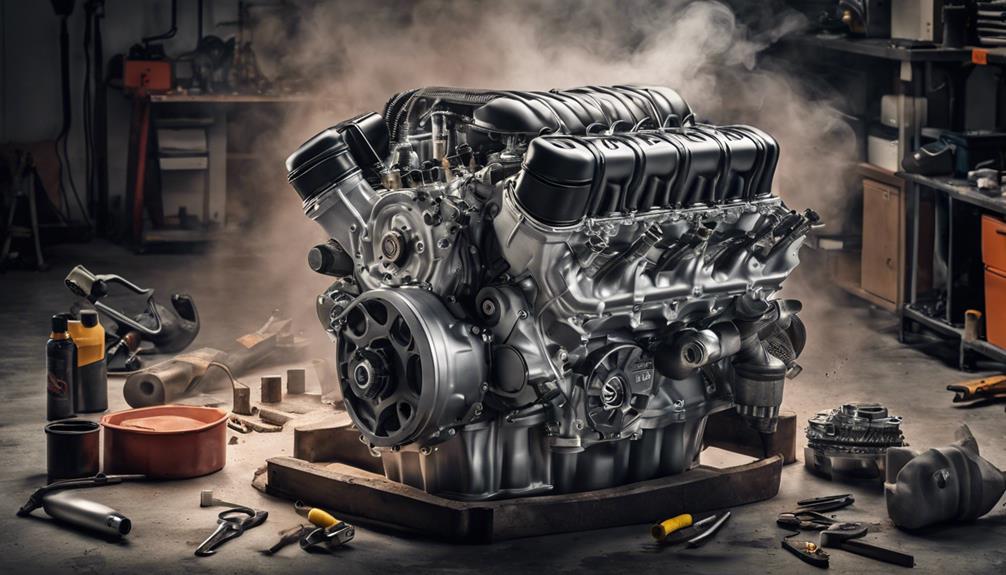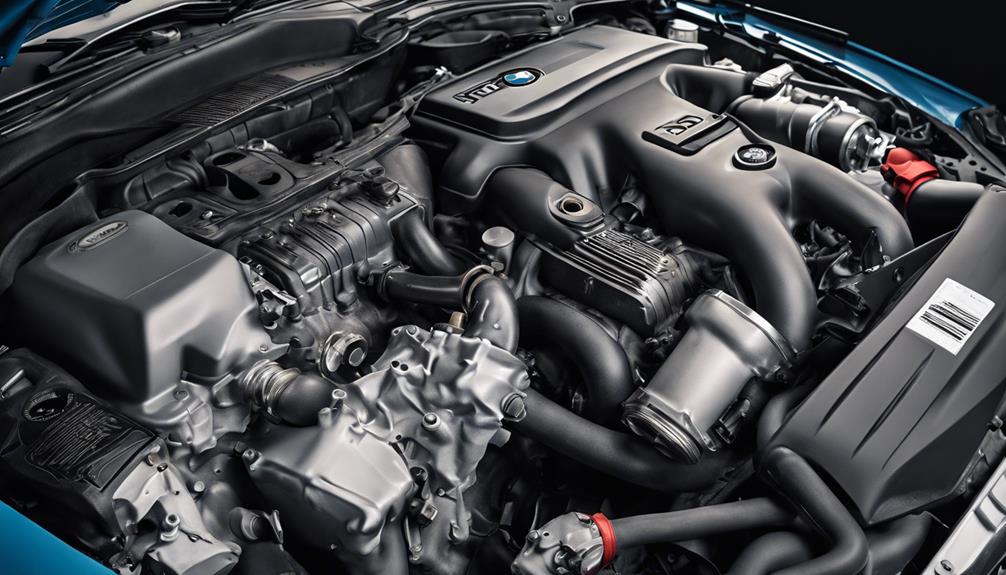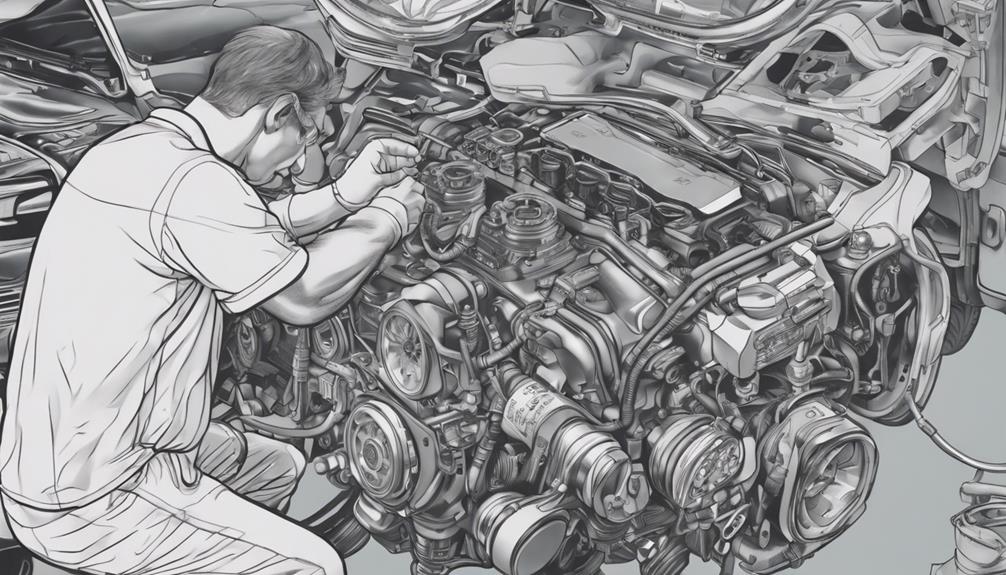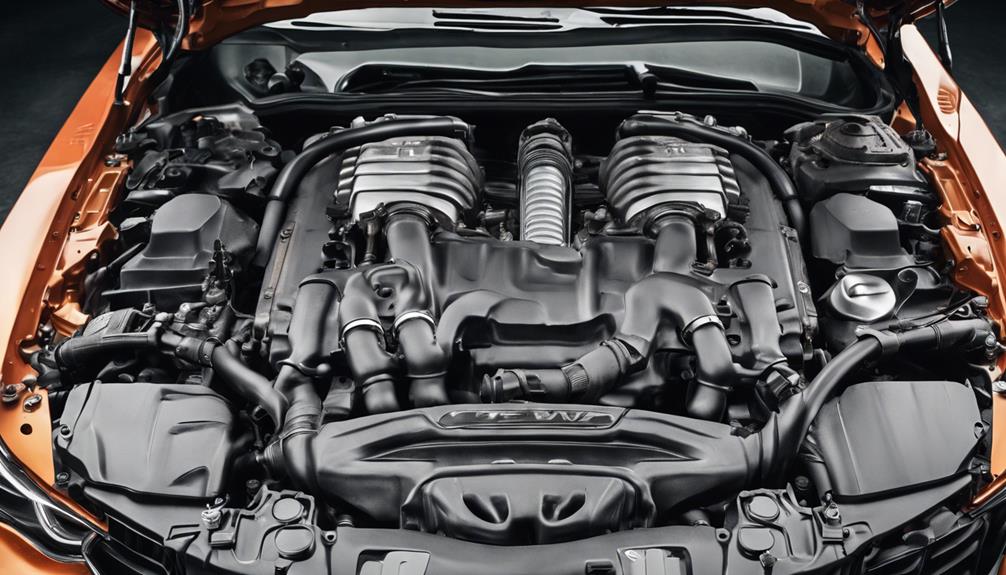If you're cruising in a BMW E39, watch out for cooling system hiccups like erratic temperature readings or the dreaded Service Engine Soon light. The water pump and thermostat often play tricks, while radiator woes can unexpectedly pop up, so keep your engine chill. Electrical glitches like flickering lights and mushy brake pedals might hint at wiring or battery bloopers, needing a pro checkup.
Suspension blues can bring on shaky shocks, dodgy springs, or wonky brakes, hinting it's time for some TLC underneath. Don't miss the brake beat, monitoring pad wear and hushing any brake pedal hints, or you might end up in a screechy situation. Plus, transmission talk – be swift on those gear shifts, listen for clunky noises, and mind the fluid flow for smooth rides. Now that you're aware of these quirks, expect more insights into the world of BMW E39 quirks.
Key Takeaways
- Watch for warning signs like temperature fluctuations and Service Engine Soon light.
- Water pump and thermostat are common culprits for cooling system issues.
- Flickering lights and spongy brake pedals indicate electrical problems.
- Worn shocks, damaged springs, and uneven tire wear signal suspension troubles.
- Regularly monitor brake pads, address spongy brake pedals, and inspect for fluid leaks.
Engine Cooling System Issues
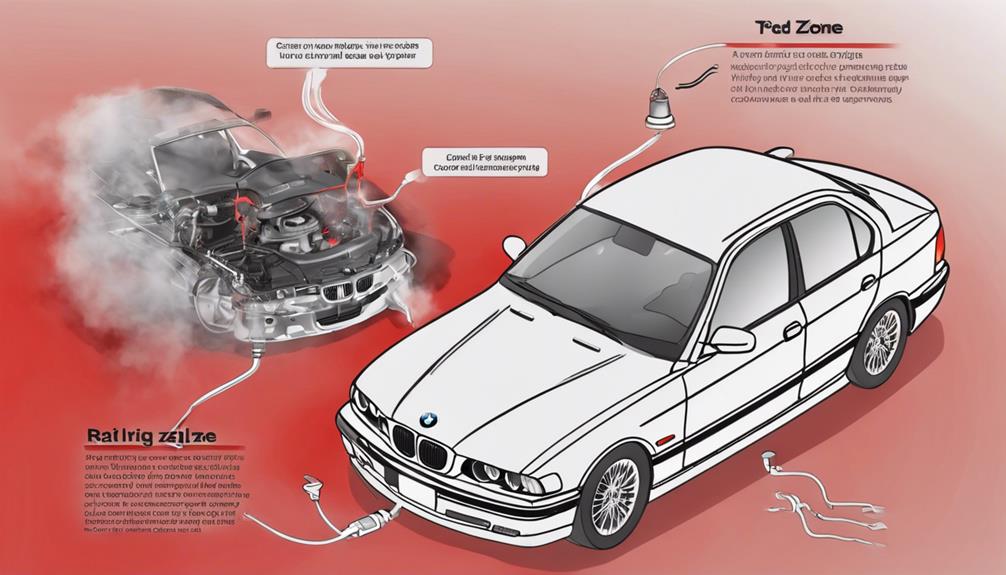
If you're driving in a BMW E39, keep a sharp eye on your engine cooling system – it's the lifeline of your ride! The water pump and thermostat in your car's cooling system are often culprits for issues. Watch out for warning signs like fluctuations in the temperature gauge or the dreaded Service Engine Soon light. While radiator problems are less common, they can still occur in E39 models, so a thorough inspection is essential.
Neglecting these components can lead to overheating, which in turn could cause severe engine damage. Regular maintenance and monitoring of the engine temperature are key to preventing costly repairs down the road.
When it comes to the cooling system, the water pump and thermostat are like the vital duo keeping your engine at the right temperature. So, don't overlook these important parts if you want to avoid being stranded on the side of the road with a smoking hood!
Electrical Problems and Solutions
Electrical gremlins can wreak havoc on your BMW E39, causing flickering lights and spongy brake pedals that demand your attention. These issues can stem from faulty wiring, battery problems, or common fuse box issues in your BMW e39.
When you notice flickering lights or experience a spongy brake pedal, these are warning signs to address potential electrical problems promptly. It's essential to seek a professional diagnosis to accurately pinpoint the root cause of these electrical gremlins. Ignoring these symptoms could lead to more severe complications down the road.
Keeping an eye out for inconsistencies like lights flickering, battery drainage, or fuse box malfunctions can help you stay ahead of potential electrical issues in your BMW e39. Remember, a proactive approach to electrical problems can save you time and money in the long run.
Suspension Components Troubleshooting
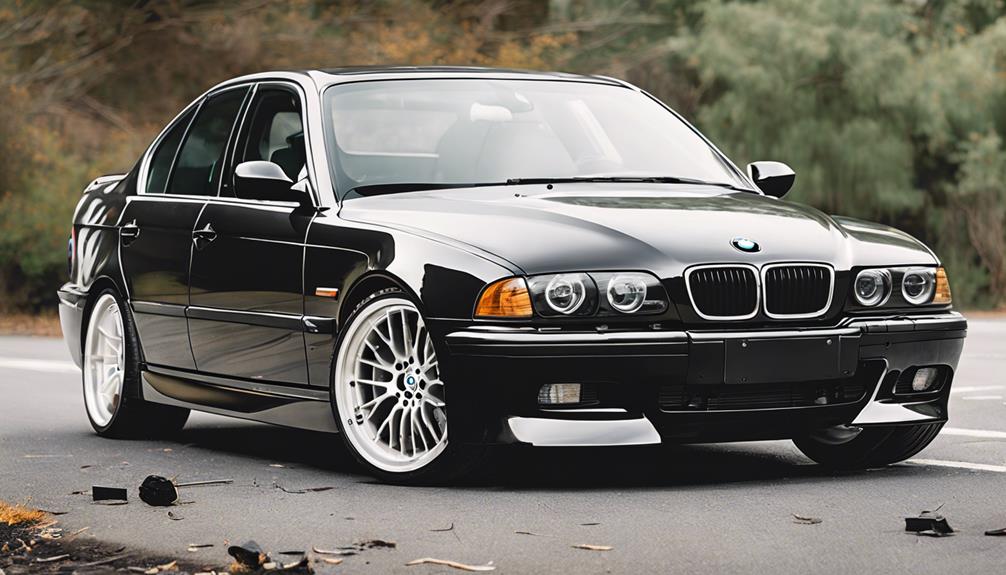
Examining the suspension components of your BMW E39 is essential to guarantee peak performance and safety on the road. When troubleshooting suspension issues, keep an eye out for worn-out shocks, damaged springs, loose steering, brake jittering, uneven tire wear, and misalignment. These symptoms could indicate underlying problems that need attention. Regular inspection and maintenance of these components are crucial to ensure optimal performance of your BMW E39. Remember, a well-maintained suspension system not only enhances the driving experience but also contributes to overall safety.
| Suspension Components | Possible Issues |
|---|---|
| Worn-out shocks | Reduced shock absorption |
| Damaged springs | Uneven vehicle height |
| Loose steering | Difficulty controlling the vehicle |
| Brake jittering | Brake system affected |
Brake System Concerns and Maintenance
When it comes to maintaining your BMW E39's peak performance and safety, paying attention to brake system concerns and maintenance is non-negotiable. Here are some important points to keep your brakes in top shape:
- Monitor brake pad wear: Regularly checking your brake pads can prevent issues and guarantee safe braking performance.
- Beware of a spongy brake pedal: A spongy feel indicates potential brake system issues that need to be addressed promptly.
- Look out for brake fluid leaks: Any leaks can compromise brake function, so it's crucial to address them immediately.
- Listen for grinding noise: If you hear grinding noises during braking, it's a clear sign that you need to have your brakes inspected without delay.
Transmission Problems and Solutions
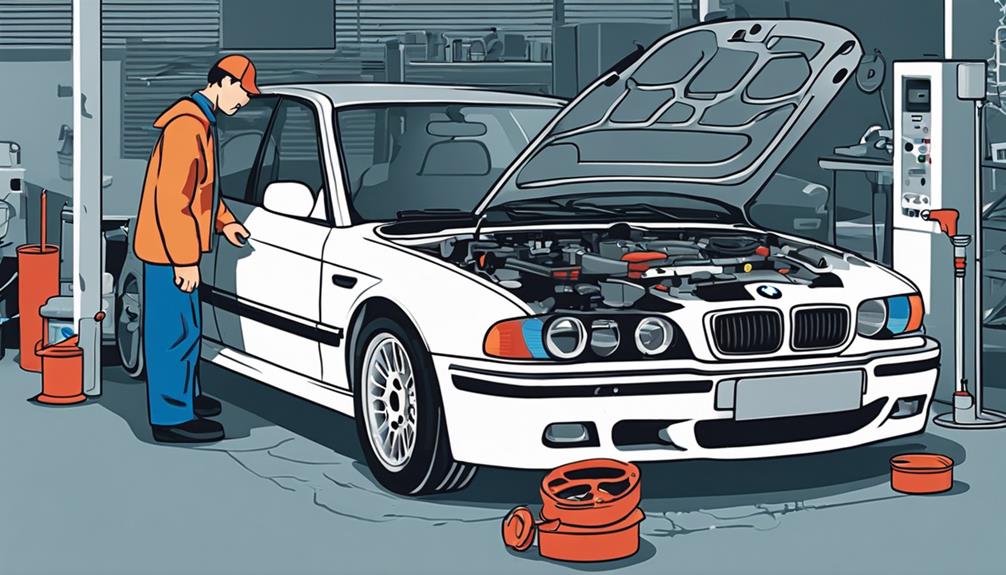
To keep your BMW E39 running smoothly, addressing transmission problems promptly is essential to ensure top performance and longevity. Monitoring transmission fluid levels regularly is key to ensuring proper lubrication and cooling, preventing premature wear on transmission components.
If you notice delayed shifting, it could be a sign of issues with solenoids, sensors, or the transmission control module; getting these checked out promptly is vital for peak performance. Strange noises during gear changes might indicate worn-out transmission components or fluid contamination, which can lead to more severe damage if left unattended.
Additionally, transmission fluid leaks should be addressed promptly to prevent damage to internal parts and maintain peak performance. For any concerning transmission symptoms, it's best to seek a professional inspection and diagnosis to pinpoint the root cause and prevent further issues down the road.
Prioritizing the health of your transmission will help your BMW E39 deliver a smoother and more enjoyable ride.
Frequently Asked Questions
Are BMW E39 Reliable?
Yes, BMW E39 models are generally reliable. With proper maintenance, they offer a smooth and powerful driving experience. Stay on top of repairs, especially with common issues like cooling system failures, to keep your ride dependable.
How Long Do BMW E39 Last?
With proper maintenance and care, BMW E39 models can last well over 200,000 miles. Your driving habits, maintenance routine, and environmental conditions play a role in its longevity. Stay on top of servicing to enjoy many miles ahead!
Is the BMW E39 Rare?
No, the BMW E39 is not rare. Thousands were produced, making it a common sight on roads. Its popularity among enthusiasts and availability in the used car market guarantee you can easily find one for yourself.
Are BMW E39 Going up in Value?
Absolutely, BMW E39 models, especially the M5 and 540i, are definitely on the rise in value. Enthusiasts and collectors are snatching up well-maintained, low mileage examples due to their timeless design and performance capabilities.






